As Iran’s presidential election heads to run-off, vibrancy of its democracy is evident
By Xavier Villar
The snap presidential election in Iran is headed to a run-off on July 5, after none of the four candidates in the race managed to garner at least 50 percent of votes in the June 28 election.
This marks the second time in the history of the Islamic Republic of Iran that a runoff is required to decide who will be the next president of the country.
In the first round, former health minister Masoud Pezeshkian emerged as the frontrunner with 10.4 million votes, accounting for 43.5 percent of the total votes, according to data provided by Iran’s interior ministry.
Former lead nuclear negotiator Saeed Jalili garnered 9.4 million votes, representing 37.7 percent of the total vote count, meaning he will face Pezeshkian in the run-off.
Parliament speaker Mohammed Baqer Qalibaf received 3.4 million votes, equivalent to 14 percent of the total votes, placing him third after Pezeshkian and Jalili.
Mohammed Pourmohammadi received 200,000 votes, accounting for 0.8 percent of the total vote count, as announced by the country’s interior ministry on Saturday.
The total voter turnout was around 40 percent, and the run-off vote on Friday is expected to have a higher turnout, according to election observers.
Qalibaf's third-place finish has been deemed significant, especially since he was seen as the favorite earlier in the campaign, even leading several pre-election opinion polls.
After the results were announced, Qalibaf bowed out gracefully and issued a statement urging his supporters to back Jalili in the runoff vote on Friday.
"Although I personally respect Dr. Pezeshkian, the journey is not over yet. Due to my concerns about some of the people surrounding him, I call upon all revolutionary forces and my supporters to prevent the return to power of the movement that has significantly contributed to our current economic and political problems,” read the statement.
Iranians share their political views about the two candidates qualified for the runoff election #IranVotes2024 pic.twitter.com/Nn1NRtHbSJ
— Iran Election 2024 (@PressTVElection) June 29, 2024
Qalibaf added that he was glad to have participated in the election, although his "political sense" indicated he should remain in his position as the speaker of the Iranian parliament.
He stated that his candidacy "provided an opportunity for the revolutionary movement in the second round of the (presidential) election."
During the final days of the campaign last week, two marathon meetings took place, one in the city of Mashhad and another in the capital Tehran, aimed at reaching an agreement between the two candidates—Jalili and Qalibaf—and building consensus.
However, in the end, both principlist candidates decided to take part in the June 28 election.
The two candidates who had withdrawn their candidacy to support the unity of the revolutionary front, Alireza Zakani and Amir-Hossein Ghazizadeh Hashemi, have now come forward in support of Jalili.
Zakani asserted that efforts will be made to ensure Jalili's victory. Ghazizadeh Hashemi stated in a post on X (formerly Twitter) that it is "the duty of all who care about the country to vote for Jalili as the representative of the principlists in the election."
Pezeshkian, on the other hand, has the support of many ministers who served in the Hassan Rouhani government, including former foreign minister Javad Zarif.
The two candidates advancing to the runoff, scheduled for next Friday, will launch their respective campaigns on Sunday. This will be followed by two televised debates on Monday and Tuesday hosted by the state broadcaster IRIB, as well as other televised programs to win over voters.
According to Iran's electoral law, candidates can begin campaign activities for the runoff once the final results of the first round are confirmed. The interior ministry has sent the results to the Constitutional Council, a 12-member body, for review and confirmation.
Millions vote in Iran’s presidential election for resolution of issues, country’s progresshttps://t.co/wlR6wgXRAB #IranVotes2024
— Iran Election 2024 (@PressTVElection) June 29, 2024
As with the first round of the election on Friday, the campaign can continue until 24 hours before the start of the runoff vote next Friday.
The presence of Jalili and Pezeshkian in a runoff vote underscores the notable differences between the two candidates while reflecting the diversity of political positions within the Islamic Republic.
The beauty of the Islamic Republic lies in the fact that people from different walks of life and different political spectrums are able to run for the top executive office of the country.
Their electoral platforms and political visions are markedly different, including in the area of foreign policy, but their fundamental positions on issues of national interest remain the same.
This existence of two options that are so distinct and far apart within the political-economic spectrum challenges the fake Western narrative of a lack of real choices in the Islamic Republic.
This diversity of options, however, is not new. The Islamic Republic of Iran has had presidents from diverse political backgrounds and currents in the past, which shows the vibrancy of the country’s democracy, something not seen in the West.
It is evident that Jalili and Pezeshkian represent real, distinct, and independent options that reflect the diverse political visions upon which the Islamic Republic was built, without this being seen as a contradiction. So, whoever wins will be the win for the Islamic Republic and its diversity.
Xavier Villar is a Ph.D. in Islamic Studies and researcher based in Spain.
(The views expressed in this article do not necessarily reflect those of Press TV)
VIDEO | Rome, Milan host new protests in solidarity with Palestinians
Dec. 21: ‘Axis of Resistance’ operations against Israeli occupation
Spain jurists demand ties with Israel ties be cut
VIDEO | Press TV's news headlines
VIDEO | Iran honors top Science Olympiad medalists
VIDEO | Austrians arrested at Gaza protest in Vienna
10 killed in bus crash in western Iran
VIDEO | One-man-band journalism with Civili


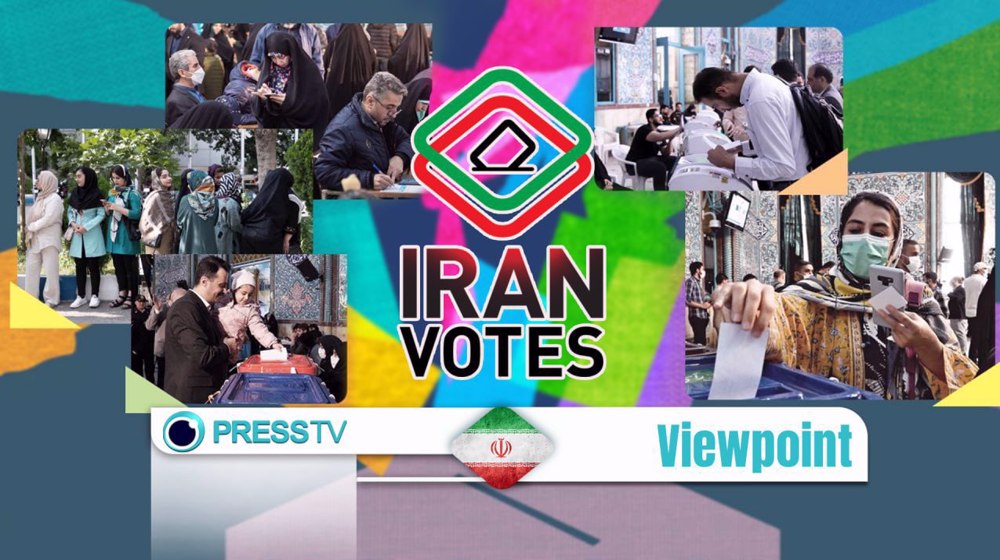
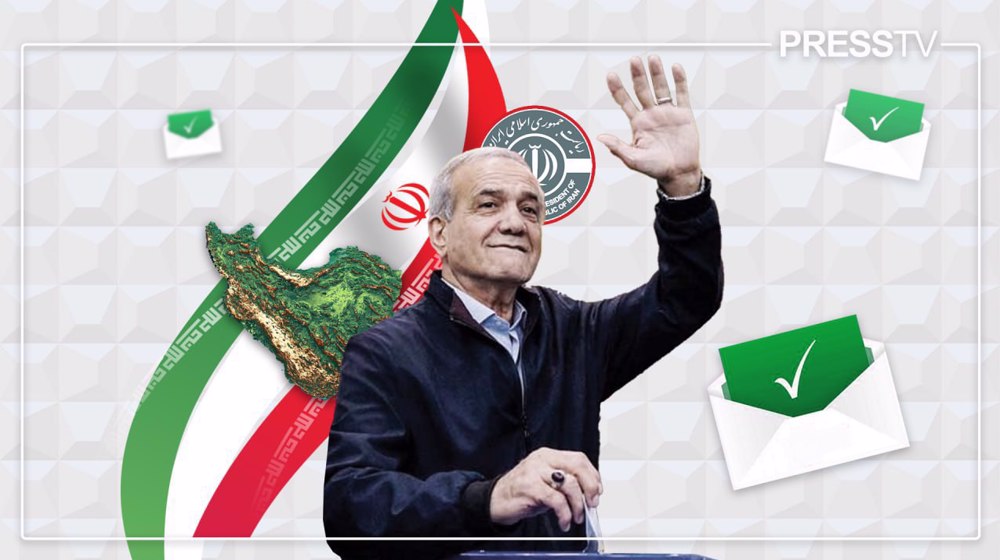
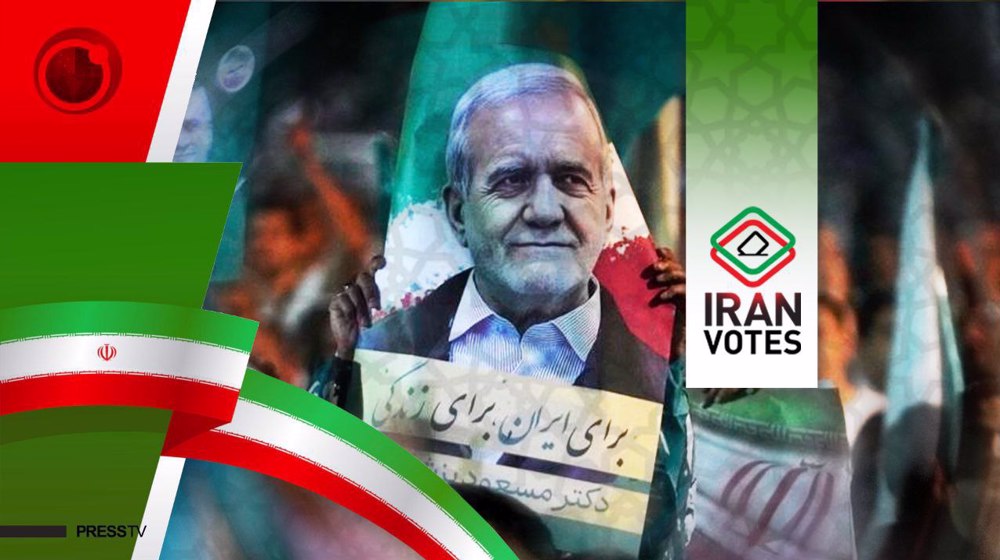
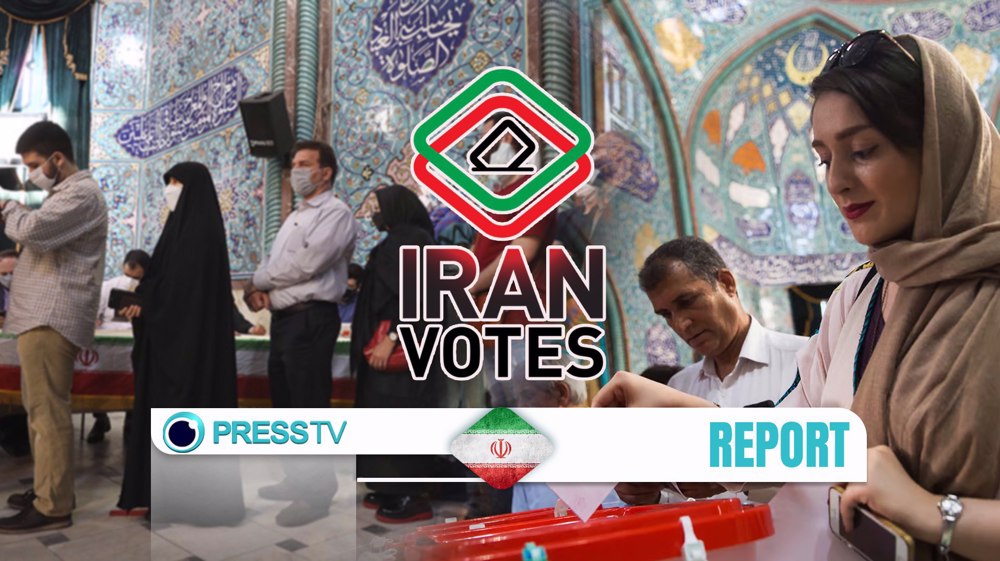



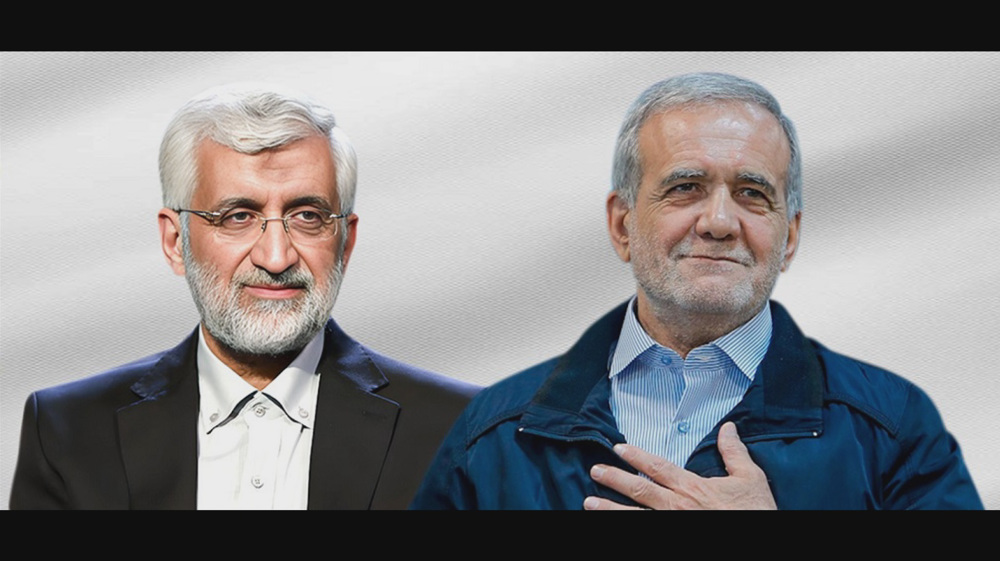
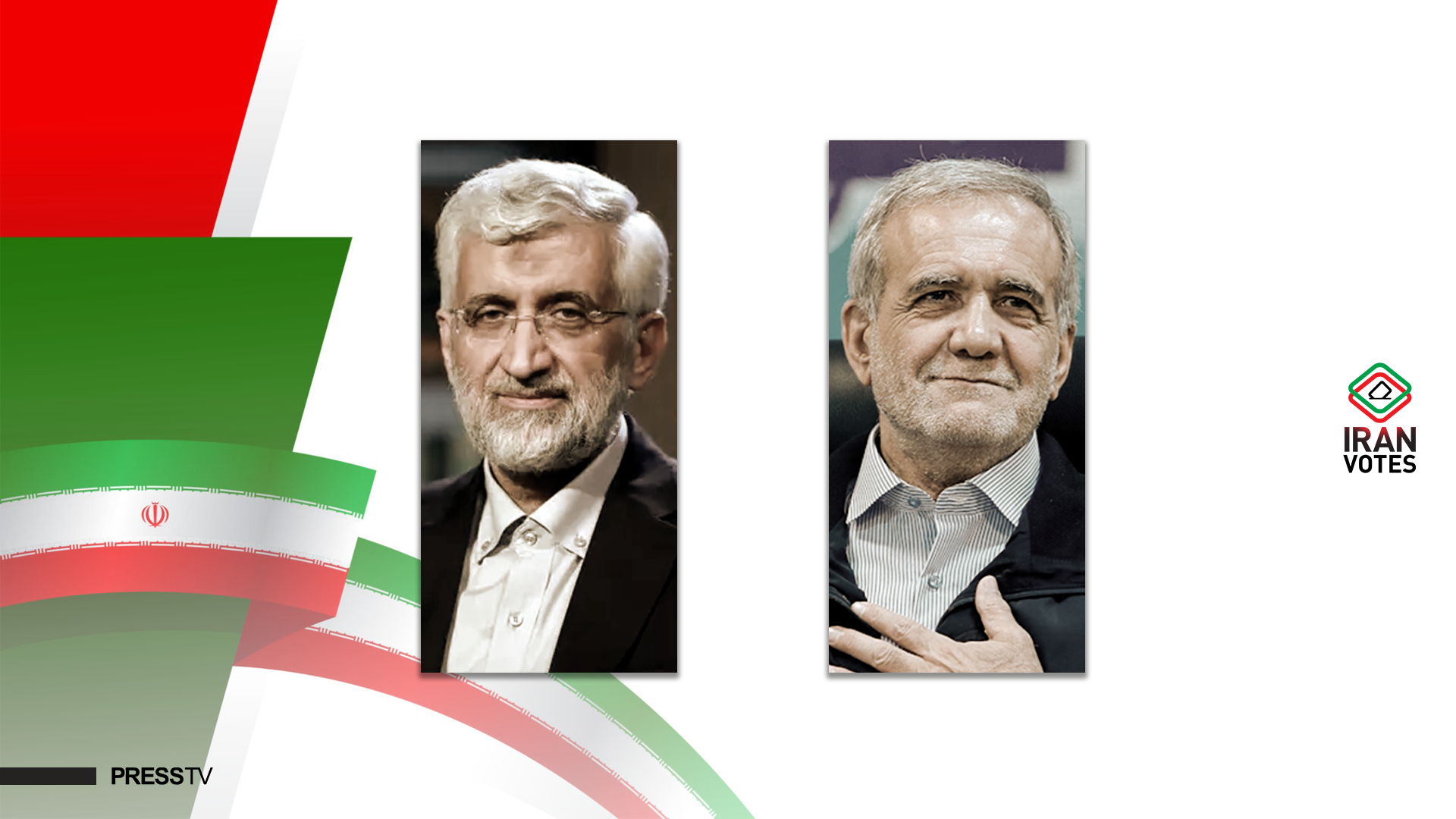
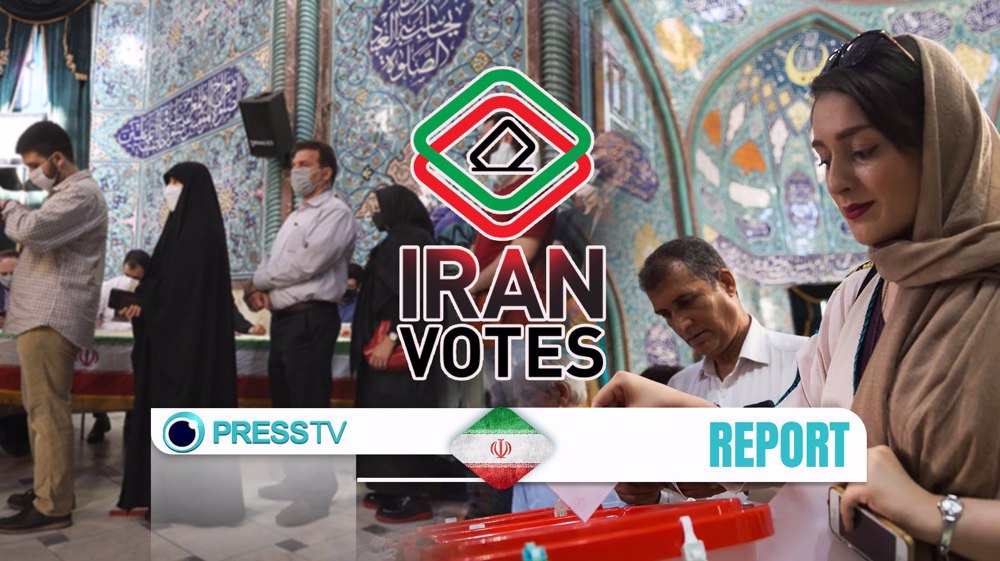
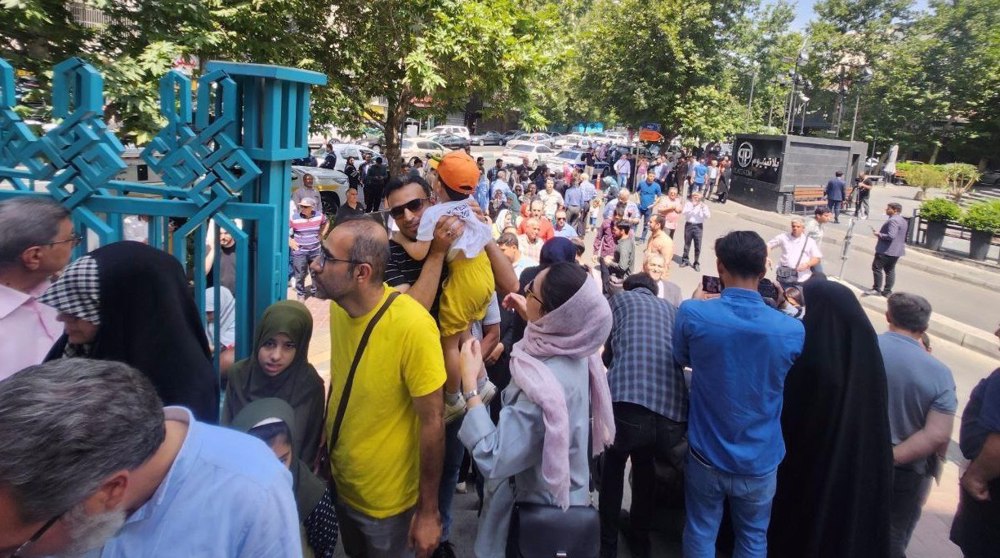
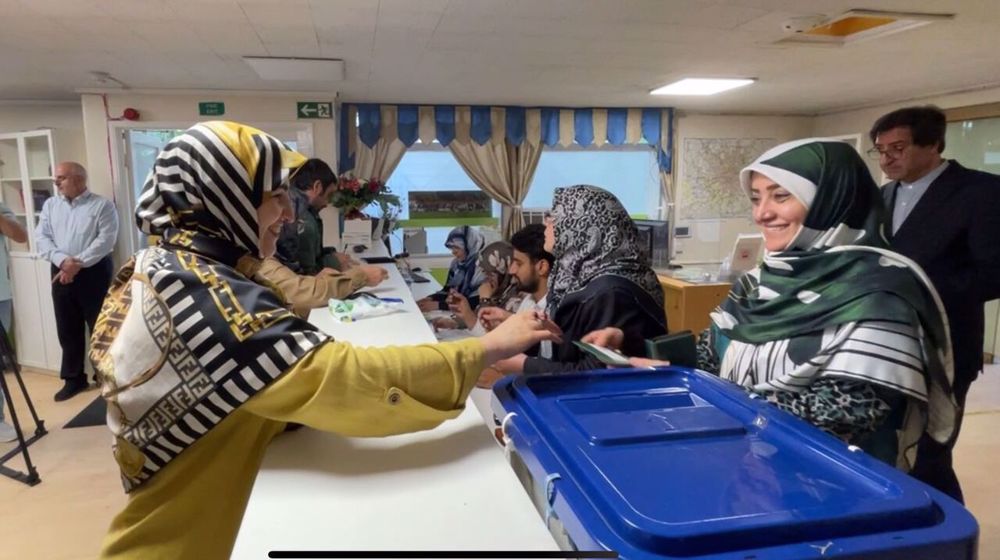

 This makes it easy to access the Press TV website
This makes it easy to access the Press TV website